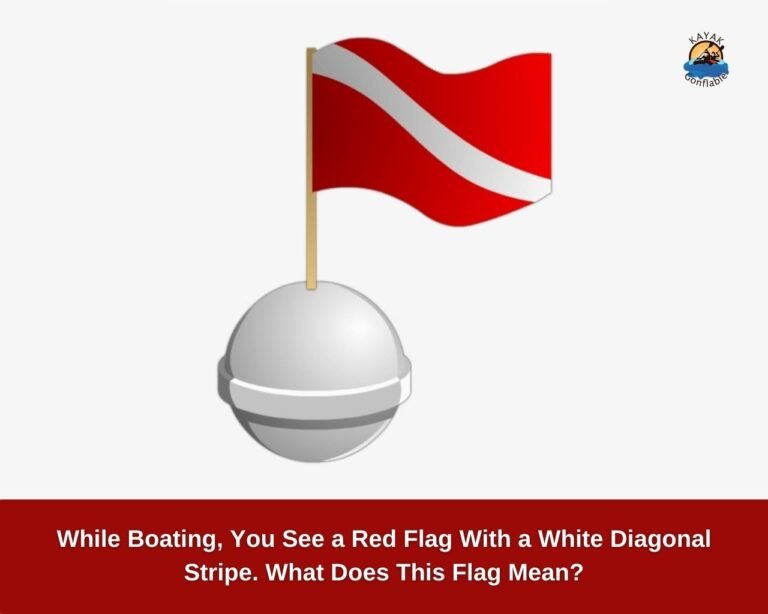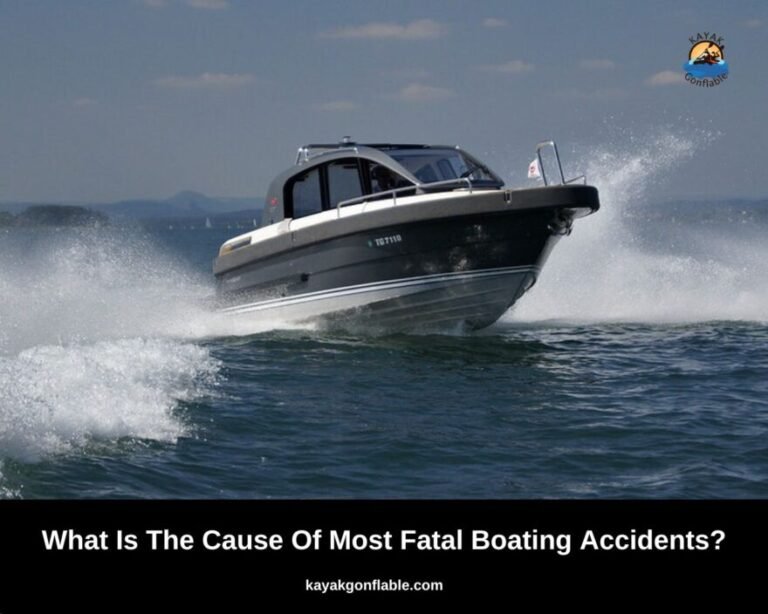How Does The Effect Of Alcohol While Boating Compare To Its Effect While On Land?

What is Alcohol?
A liquid made up of ethanol and water is known as alcohol. It’s used for a variety of purposes, including as a beverage and an industrial solvent. It can be found in a variety of forms, such as beer, wine, and spirits.
Alcohol is a pollutant as well. It has the potential to harm land and aquatic ecosystems, as well as contribute to climate change.
Alcohol drinking aboard a watercraft comes with its own set of hazards that aren’t present on land, such as the danger of in-boat accidents or watercraft collisions.
Furthermore, open water environment can accentuate any alcohol-induced impairment, making it harder for the drinker to evaluate how much they’ve drunk and increasing the chances of becoming inebriated.
Effects of Drinking on Land
Drinking has numerous implications on land. A variety of factors, including the type and quantity of liquor, consumed, affect these effects. Drinking has both beneficial and harmful consequences on land.
Booze can help break the ice during a party or social event, resulting in more pleasurable and friendly times. Excessive drinking, however, can result in risky situations such as conflicts, accidents, and even violence.
It’s vital to be aware of and adhere to your drink limit at all times. Liquor encourages people to make poor judgments, like drinking while driving, which could result in increased traffic accidents, injuries, and deaths.
Another effect of increasing drinking is an increase in crime rates. Drinking impairs cognitive function and balance, leading to poor decisions and mishaps like slips and falls. Rape and other sexual attacks have been linked to alcohol consumption.
Alcohol also has negative consequences for wildlife and infrastructure. Alcohol has an impact on the environment. The generation of waste is one of them.
Alcoholics frequently consume more booze than they should, causing their bodies to create more waste than usual. Alcohol, perspiration, and excrement are all found in this discharge. Furthermore, drinking can harm plants and crops.
This happens when alcohol breaks down into compounds that can harm plants. Alcohol can also reduce oxygen levels in the soil, harming the environment.
Effects of Drinking While Boating
You should be aware of the risks involved with drinking while boating whether you’re on a pontoon boat or an open ocean vessel.
Liquor impairs your ability to safely handle a boat and can result in risky scenarios. Some of the consequences of drinking while boating are listed below:
- Alcohol slows your reaction speed and compromises your vision.
- It impairs your coordination and agility in the water.
- It can induce sleep, causing people to lose their equilibrium and tumble overboard.
- It causes dehydration and confusion.
- It causes operators to misjudge distances, potentially leading to accidents.
- Alcohol lowers inhibitions, causing people to act erratically and participate in risky behavior.
- Injuries incurred by drunk drivers are often more serious than those sustained by sober drivers.
- It may result in drowning.
- Alcohol’s effects are exacerbated by water, causing them to kick in faster and making it impossible to measure the amount drunk, resulting in inebriation.
Remember that even moderate drinking can jeopardize your safety and the safety of others on the water, so drink carefully if you do.
Comparisons Between Alcohol’s Effects On Land and Water
Because both activities entail drinking, the effects of alcohol on land and while boating are frequently compared. Drinking is a huge concern on both land and water, with similar repercussions in both circumstances, though one is more serious.
Drinking alcohol while boating is risky since the liquid can easily spill and injure passengers. There is always the possibility of colliding with another watercraft, a rock, or other objects in the water, resulting in disastrous consequences.
Drowning, boat damage, and alcohol poisoning are all increased when alcohol is consumed while boating. Consumption on land has implications as well, but they are not necessarily as severe.
Drinking, for example, can result in impaired coordination and judgment. Vandalism, fighting, and higher crime rates are all common outcomes. In both circumstances, drinking puts drivers, passengers, and onlookers in danger.
Drinkers can easily get addicted, and long-term drinking can harm one’s health and well-being. Drinking has a lot of risks compared to the euphoric pleasure, therefore don’t drink and drive or boat, and always drink in moderation.
Consequences Of Boating When Drunk
Depending on your level of intoxication and any injuries sustained as a result of the incident, there are a variety of sanctions for boating while intoxicated. A fine is a prevalent sanction, but alternatives include jail time, loss of driving privileges, and a criminal record.
A first-time offender might receive a ticket and a fine, as well as the requirement to complete an alcohol awareness program, however, a repeat offender may face jail time and a higher fine.
The watercraft pilot may be held accountable in some instances. All boaters should be aware of their state’s laws regarding boating while intoxicated, as each state has its own set of sanctions.
Drunk Driving Penalties
If you are convicted of driving under the influence of alcohol, you may face a number of punishments. Fines, license suspension, and jail time are all possible consequences. Your driver’s license may be revoked in some instances.
You may face further criminal penalties depending on your alcohol level at the time of your offense. A DUI can have serious implications, so it’s crucial to know your state’s regulations before drinking and driving.
Legal Limit For Alcohol While Boating
Driving a boat while intoxicated is prohibited. While boating, the legal limit for alcohol is 0.08 percent. Lower limitations apply in some states, whereas greater limits apply in others. If your blood alcohol level is more than 0.08 percent, you may be charged with a DUI.
When a person is boating, alcohol has a totally different effect than when they are on land. This is because a person’s center of gravity lies exactly above their feet when they are on ground.
A person’s center of gravity is pushed towards the back of the boat when on a watercraft, which might lead them to lose balance and go overboard. Furthermore, alcohol weakens one’s ability to think clearly and respond swiftly, both of which are necessary while boating.
While the consequences of drinking are similar to some extent, being on the water exacerbates the effects of drinking, making water drinkers worse off than land drinkers. It’s important to remember that drinking and boating is prohibited in most states.
You could risk penalties and imprisonment if you are discovered drinking while boating. Overall, remember that alcohol and boats don’t mix, so if you plan on spending time on the water, drink wisely.
Frequently Asked Questions
Is drinking on the water more harmful than on land?
Water creates a damp, warm environment that can cloud your judgment and lead to unsafe actions. Drinking weakens judgment, making you more prone to engage in harmful behaviors while under the influence. Furthermore, alcohol use increases people’s vulnerability to drowning.
Is it possible to drink while boating?
You can drink while boating, according to the US Coast Guard, as long as it doesn’t impair your ability to drive the watercraft safely.
While boating, there is a 0.08 percent limit on the amount of liquor you can consume. Eight ounces of beer or one and a half ounces of wine are comparable.
What quantity of booze is required to get a person inebriated while boating?
Intoxication while boating increases the likelihood of several accidents. To decide if someone is too drunk to pilot a watercraft safely, you must first assess how much drink is required to make them incompetent.
An average drinker can withstand 0.8-1.0 ounces of liquor per pound of body weight before becoming inebriated, according to statistics. So, if you weigh 190 pounds and drink 3 ounces of liquor, you will have consumed four drinks.
What is the effect of drinking on water?
Alcohol has certain effects on water. The most obvious is that drinking causes dehydration, which can be problematic when hiking in hot weather.
Alcohol also makes swimming and walking more difficult, as well as increases your risk of accidents. Finally, alcohol can alter the pH of water, making it potentially harmful to aquatic life.
Is it true that drinking water makes you less inebriated?
Drinking lots of water before drinking liquor will help you sober up faster and lower the amount of booze you take overall.
However, whether or not this results in reduced drunkenness is a matter of opinion. Some individuals feel that drinking water before drinking booze just rehydrates the body and makes absorbing the alcohol easier, while others believe it reduces the consequences of heavy drinking.
People who drink water before drinking alcohol however have lower blood alcohol levels than those who do not.
Does throwing up sober you up?
There’s a lot of mixed information out there about whether or not throwing up will sober you up. Some say that it does work, while others say that it’s nothing more than an ineffective way to try and sober up.
One thing is for sure though- throwing up won’t make alcohol go away faster, and it might even make things worse. This is because throwing up leads to dehydration and electrolyte balance problems.
Another reason is that throwing up fills your stomach with fluids and food. This mixture creates a loud noise in your stomach, which can make you feel nauseous and sick.
Does cranberry juice help with alcohol?
Cranberry juice is frequently recommended as a drink for people seeking to cut back on their excessive drinking. People who drank two glasses of cranberry juice each day were less likely than those who didn’t to develop alcohol misuse problems, according to a study published in the Journal of Studies on Alcohol.
Cranberry juice is also believed to boost the quantity of enzymes that break down alcohol, resulting in less intoxication. Cranberry juice has been shown to aid people who are battling with alcohol misuse reduce their alcohol consumption and improve their drinking behavior.
While there are no promises that cranberry juice can help you quit drinking, it could be a good method to cut down on your alcohol use without having to go through regular addiction therapy.
How long do you stay drunk?
Surprisingly, there is no one answer to this question since it largely depends on a person’s metabolism and drinking habits. However, according to experts, people generally remain inebriated for anywhere from 2-4 hours after drinking alcohol. This means that if you drink moderately, you can expect to be inebriated for up to eight hours.
Will a sip of alcohol show up in a urine test?
Most people are aware that they should not drive or handle heavy machinery the next day after drinking alcohol. Many people are unaware, however, that even a small quantity of booze can be detected in a urine test.
Even one alcoholic drink can elevate your blood alcohol content to 0.08 percent, which is over three times the legal limit for driving in most states, according to the National Institute on Alcohol Abuse and Alcoholism.
Why does alcohol affect you differently at different times?
Because of how alcohol is absorbed in the body, it affects people differently at different times. It can be broken down into the hallucinogenic compounds acetaldehyde and ethanol.
When the body metabolizes alcohol, acetaldehyde is produced, which can cause drunkenness, dizziness, and nausea.
Ethanol, on the other hand, is the substance that causes euphoria and intoxication. How inebriated you feel is determined by the amount of acetaldehyde in your bloodstream.
How does alcohol affect your driving?
While driving, alcohol weakens your judgment, reaction time, and coordination. It can also make you more prone to speeding, missing turns, and other errors.
Alcohol is considered to be a contributing cause in around half of all automobile accidents. So, if you’re thinking about drinking while driving, reconsider – the danger isn’t worth it!






